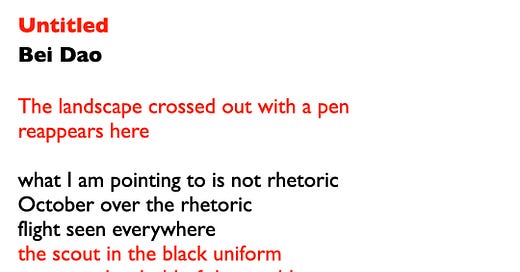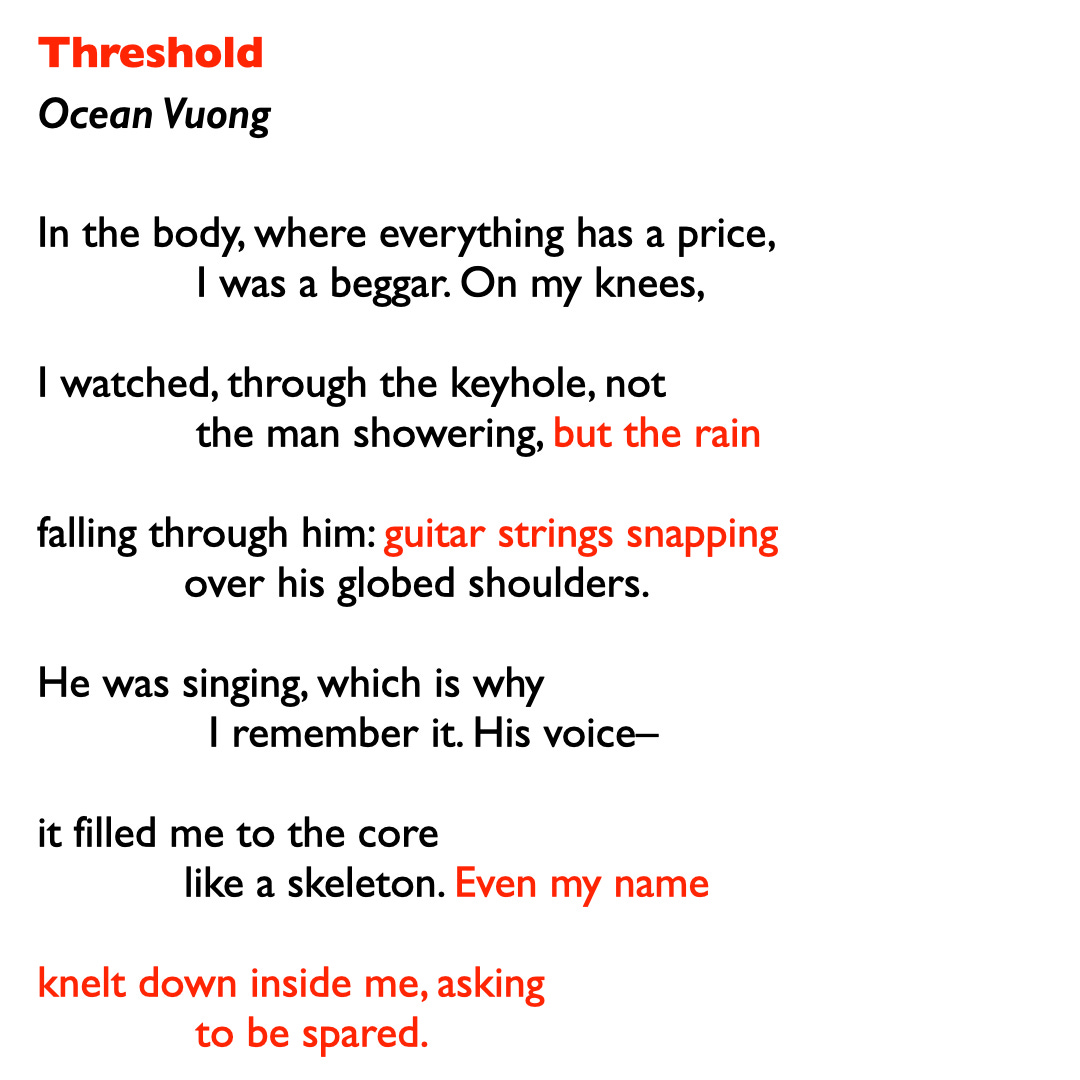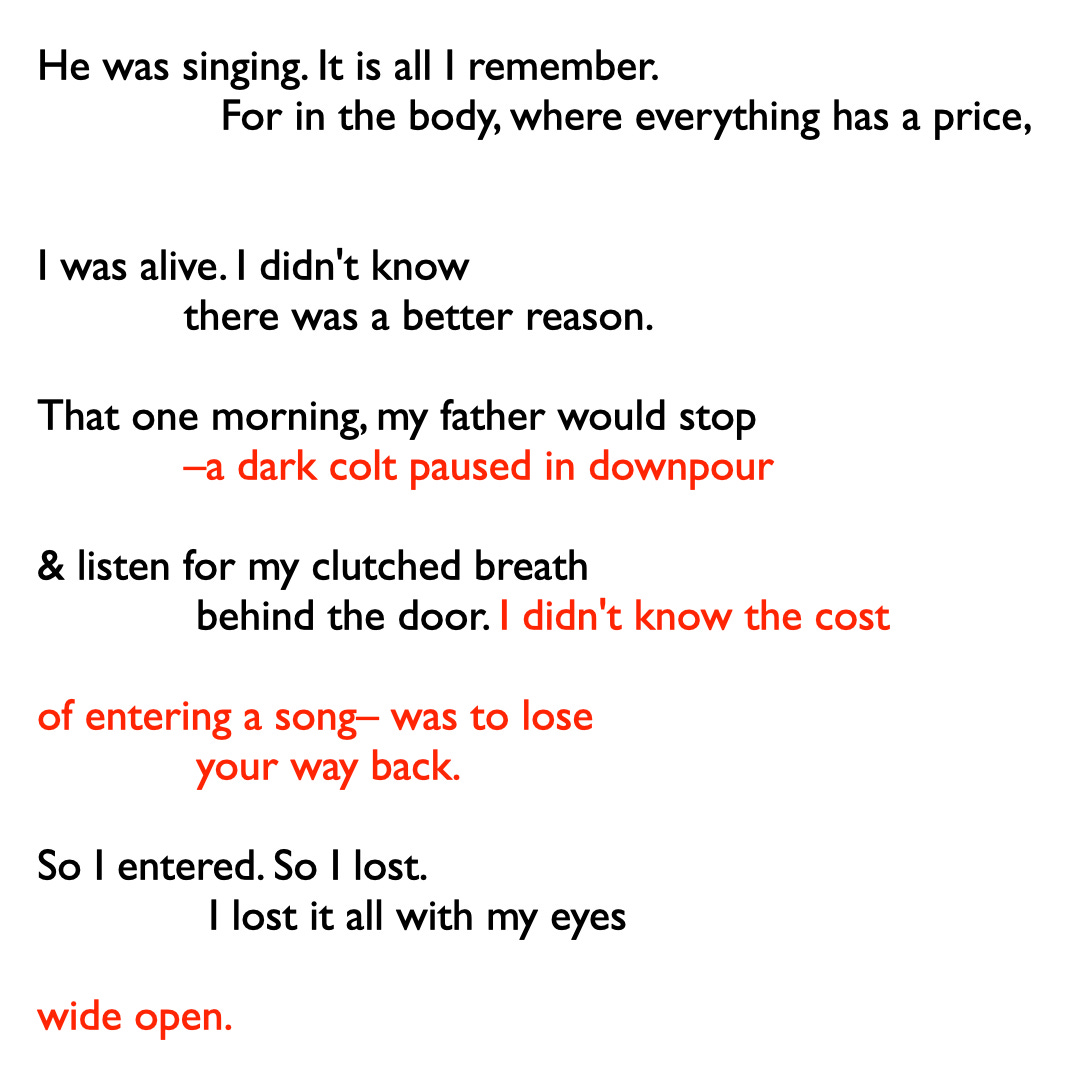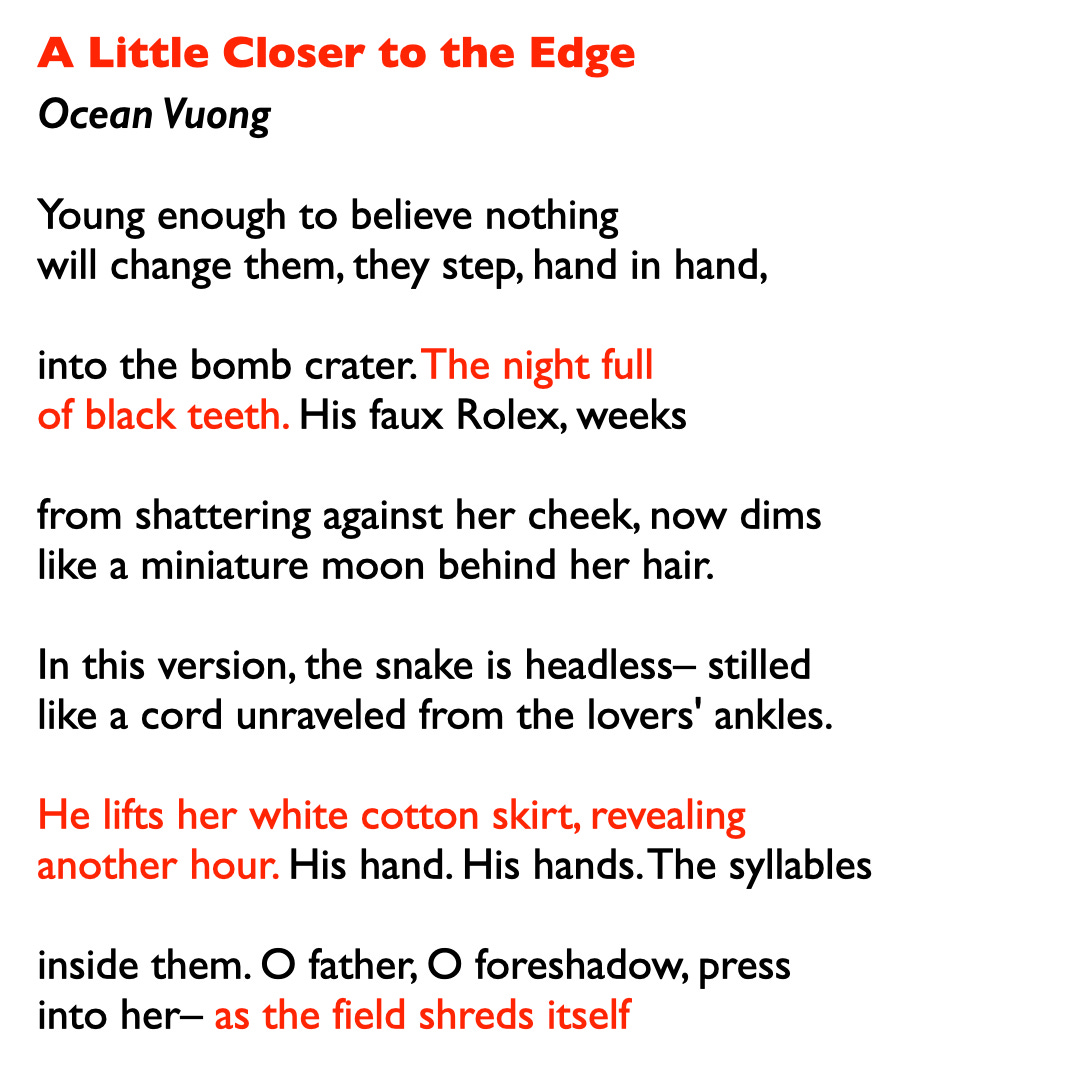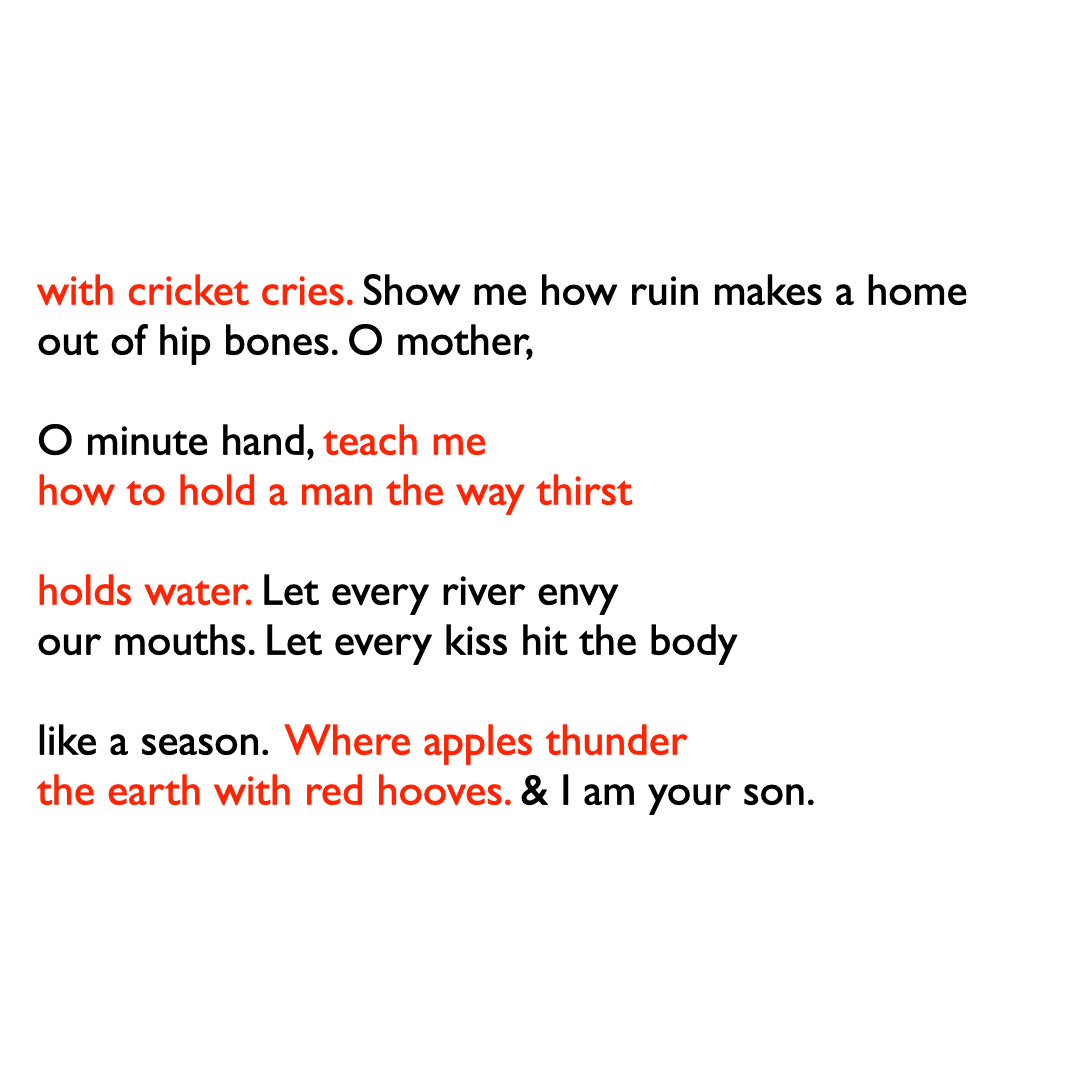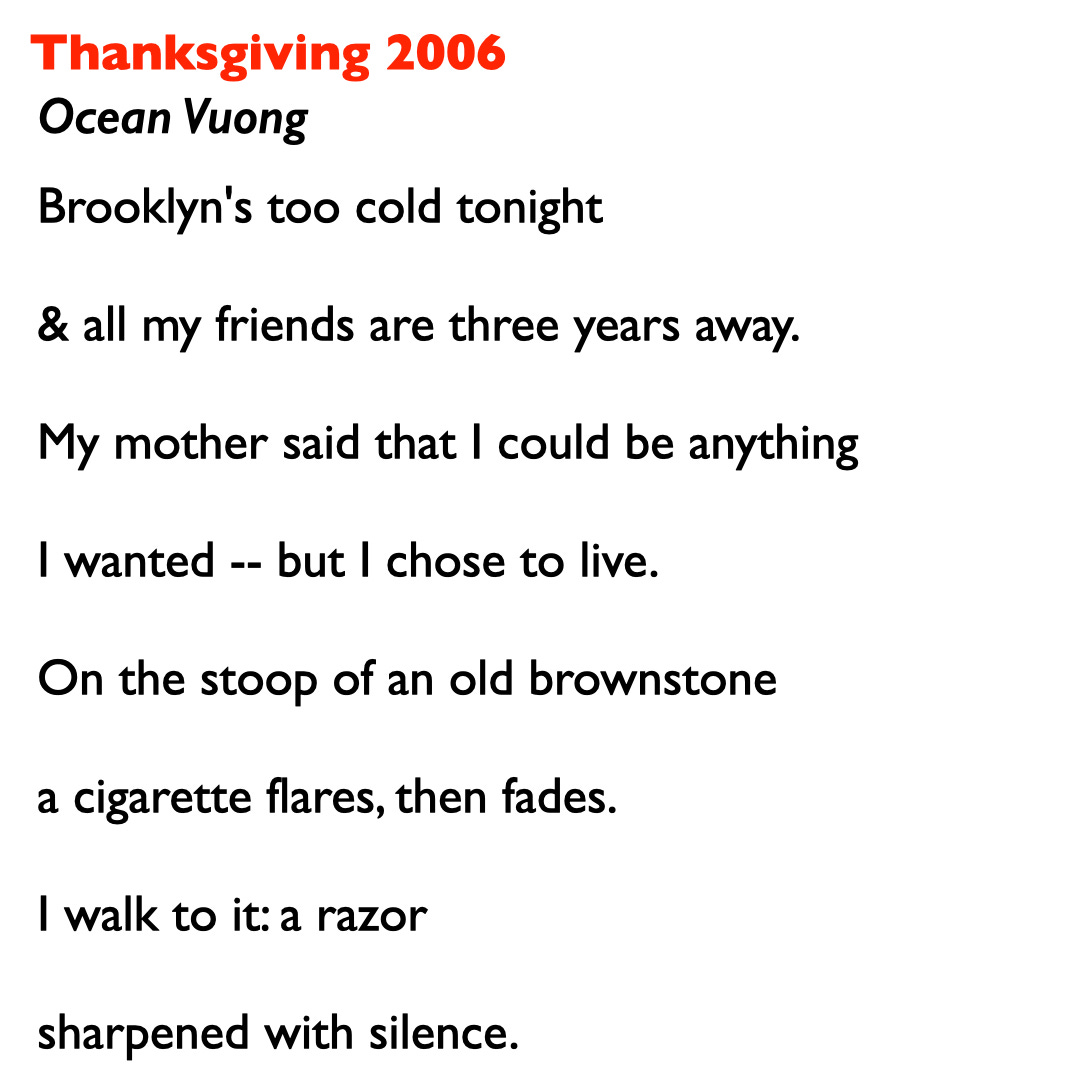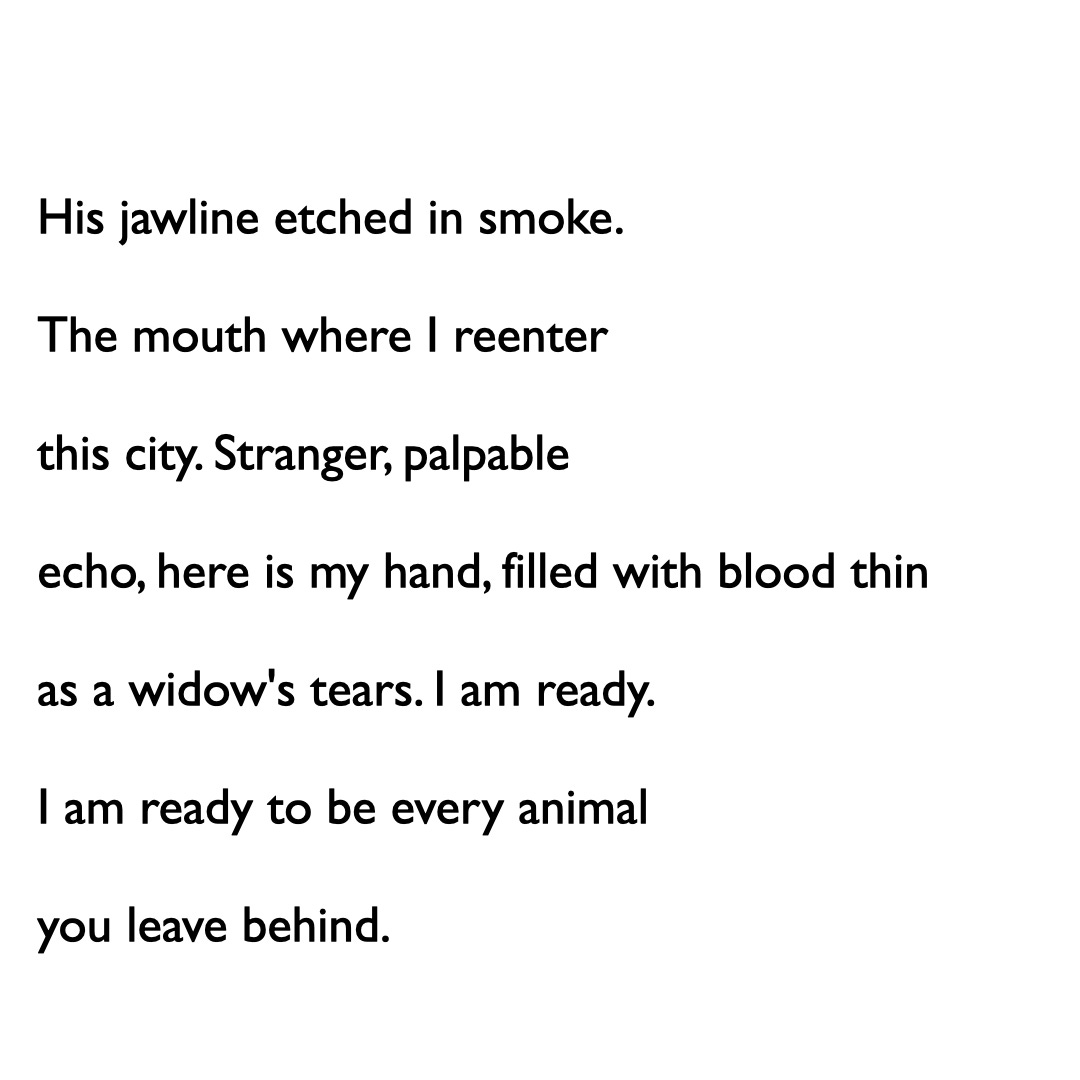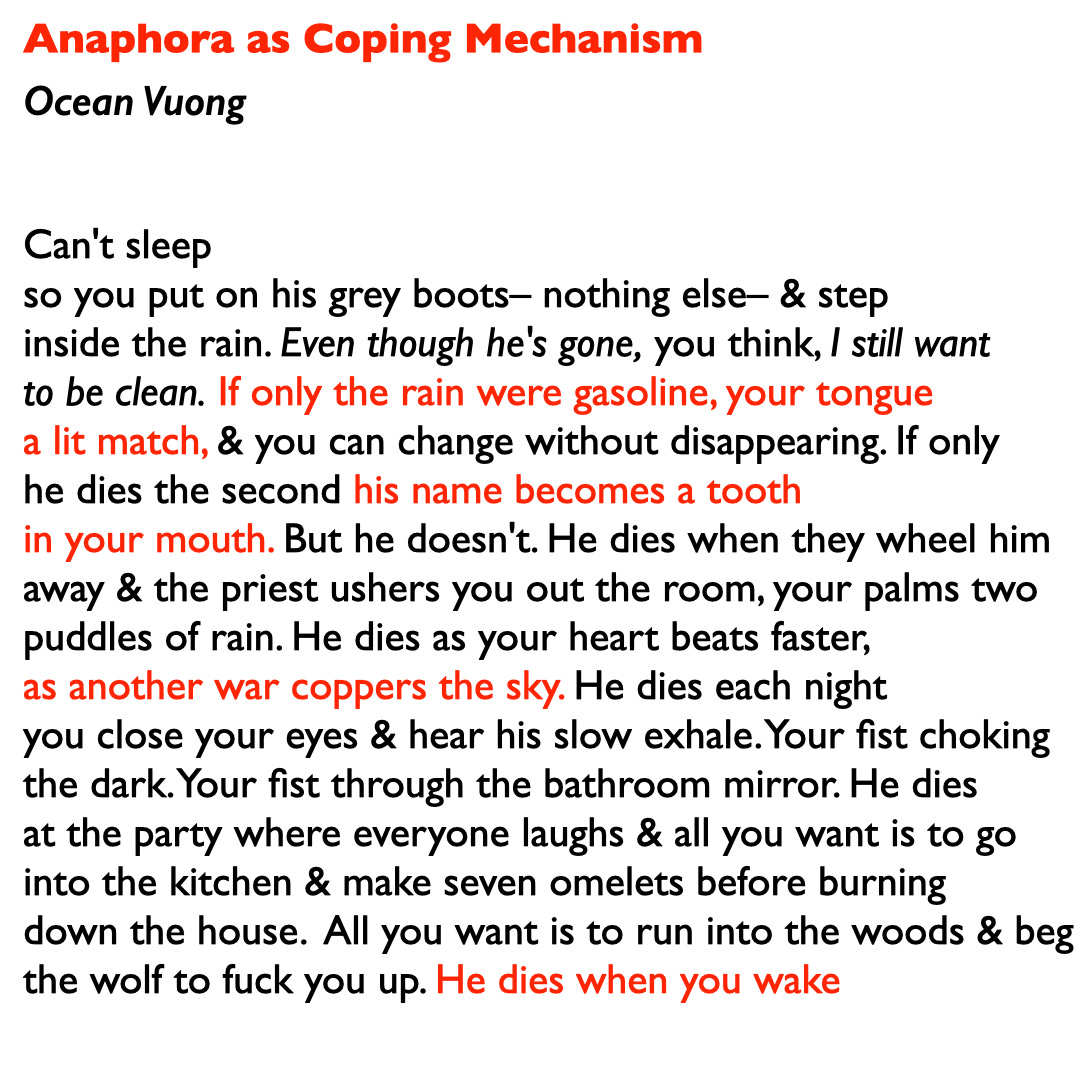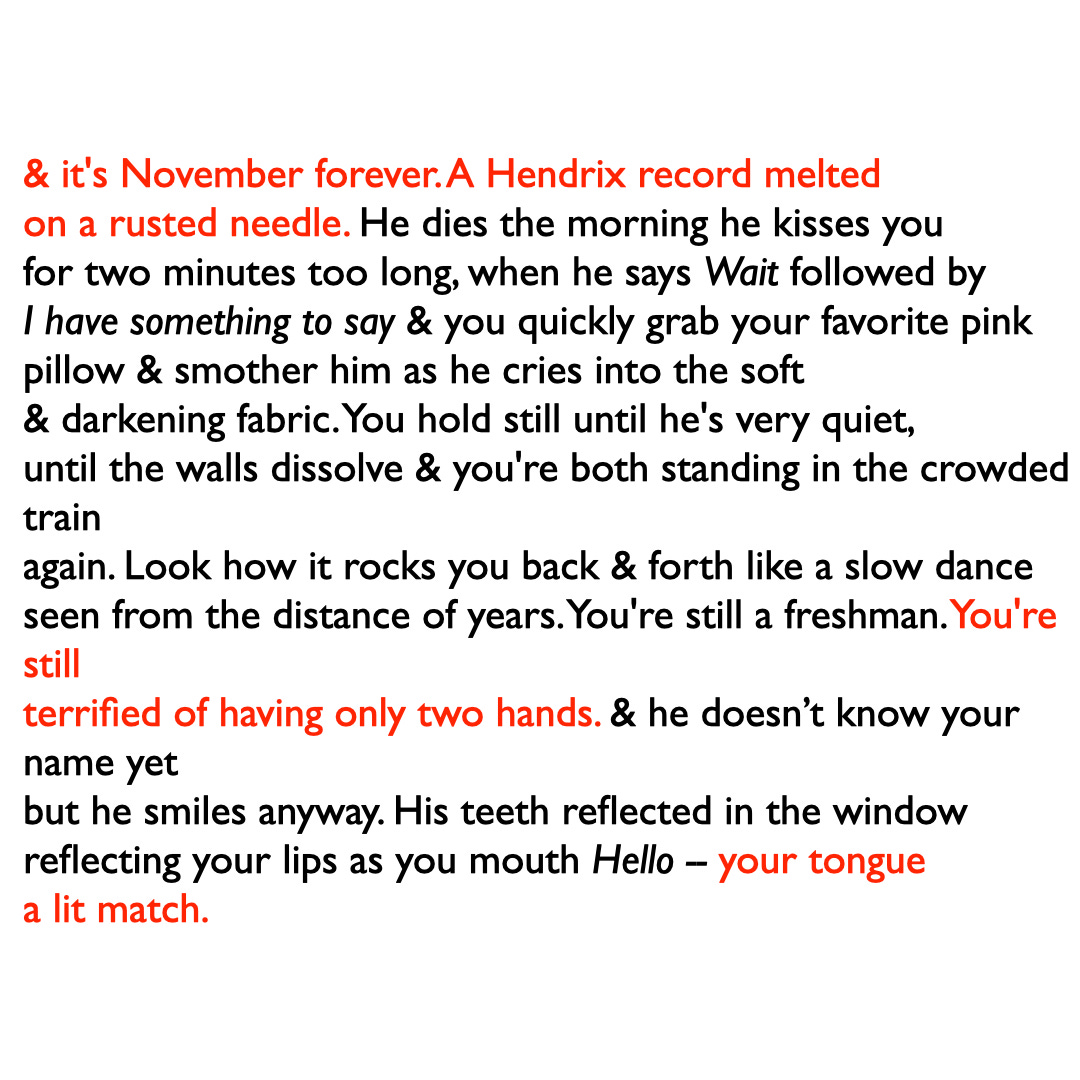Ocean Vuong via a brief stop at Bei Dao
"teach me/ how to hold a man the way thirst/ holds water"
I wrote a poem, today, about a transaction, and then I made the mistake of picking up, again, on a whim, Ocean Vuong’s Night Sky with Exit Wounds. I call it a mistake, because, after reading Vuong sometimes, you can be forgiven to think that there is no poetry, only the pause after. I have shared from this collection before, I think, but the language overpowered me with such tender violence just now, that I wanted to give space here, again, to some of those impressions, visited with fresh eyes, and a few years of cynicism.
Other commentators have punned on his name, while gesturing towards his tumultuous writing of ‘big themes’, of family, desire, violence, and war, among other things. I believe that he writes, not with the eye of a human gazing quietly at landscape, wringing the body into it through personal feeling and experience, but as a god, who lives in this world, who is blasted from the centre of its exploding heart, and is quietly picking up the pieces, and letting their incandescence beam in the light. This surge for immortality, and this awareness of the pen as divine, is resolved in a complex trapeze of control and surrender. A god must be exacting, relentless, but also sensitive. This emotional heft, and the unravelling of the body, as plea and piece of parched land, finds its way in the metaphors that hover around his testimonies of events that are garbed in the mythic, or the mundane, but always aglow with action. The Bei Dao quote that he uses in the beginning of the collection pre-empts this approach. (The first two lines from the poem, feature at the start of Night Sky with Exit Wounds).
Perhaps one could describe this entire work with those two lines - The landscape crossed out with a pen/ reappears here. What is the landscape? Is it constant, is there movement? Who is the seer, what is the seen? Who is bearing witness, why is it false? Why is it crossed out? Does a thing ever go away, to reappear?
But Bei Dao requires the space and energy of another essay. For now I will train my gaze on Vuong, whose wild steed of language threatens to overwhelm the frame. Look….
There is pain, here, but also hesitation, intimacy, but also, fear. The journey of a boy’s trembling wonder transforms from phrase to phrase, rechristened, as he is taken into his father’s naked song. I ascribe divinity to Vuong simply because he recruits the landscape in his entreaties, an essential skill for any lover, or poet - notice, for eg. how rain becomes guitar strings, and how his shoulders are ‘globe(d)’. Sometimes when I read this debut work, I wonder if Vuong will ever write like this again, with the certainty of the first book poet, whose play is far more wondrous, than those whose verse has hardened into their knuckles, after a few books, and now they laugh at themselves. His subsequent prose work, whose title is drawn from a poem in this collection, is a quick rejoinder to my naive question, outlining a new frontier of experiment.
Vuong uses language not as ink, but as a boundary. Within this shell, emotion and event course through slowly changing colour across sensory experience. This is a very fine art, and it requires close attention, but also the vibrancy and openness of feeling that is exposed to the entire universe in a second. One must see the world in a grain of sand. Perhaps these visions, these experiences, so absurd and compellingly real, must find a different idiom in their retelling. It is testimony to his field of experience, that he is able to pinpoint intimate, personal moments within the perforations of mythology, reimagine his father in the myth of Telemachus, for instance, or translate a lovers’ tryst in a deserted bomb crater with the rhetoric of time, philosophy, and parenthood. I am astounded by the intersubjectivity of his metaphors, and with what seamless ease they float, never jarring, always music.
I do not know why, but Thanksgiving 2006 has always been one of my favourite poems in the book. Look how the poem drips from the threshold of one line to the other, like rain falling to the ground in a cascade of city parapets. His mastery of enjambment is revealed here, cutting the phrase at just the right moment, giving it a centimetre of layout to breathe, before the leap to another image - another facet of feeling - across space and time. Just another strange encounter, just another moment snatched out of a city celebrating company, just another loneliness offered up as curiosity.
‘If only the rain were gasoline, your tongue a lit match…”
Dher Saara Pyar :)
If the poetry, and the commentary, resonate with you, do consider ‘buying me a coffee’.
(Matlab, if you can’t, that’s also fine, obviously. This will always be a free newsletter)
Note: Those, not in India, who’d like to support the work I do at Poetly, do write to me - poetly@pm.me. (Apologies, I will figure out international payments soon)
If you wanna share this post with a loved one…
Thanks for reading Poetly! Do subscribe if you are not reading this in your inbox. Cheers!

